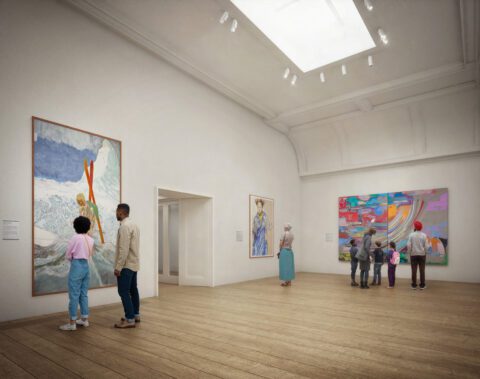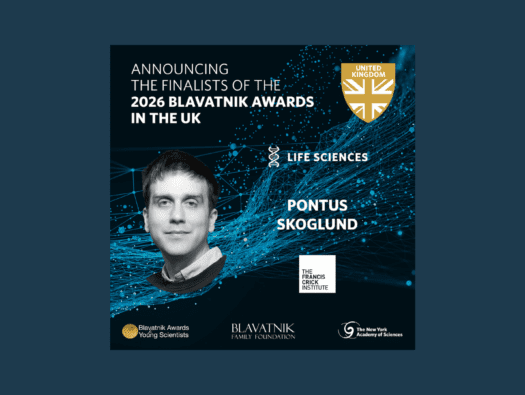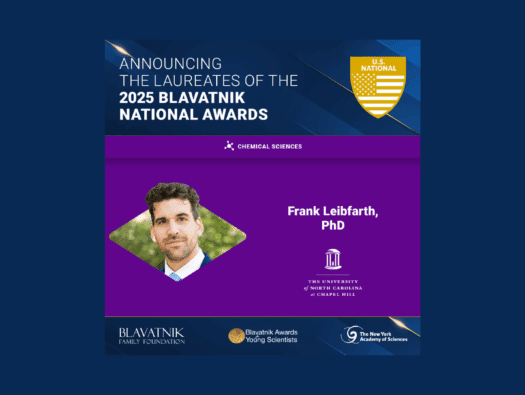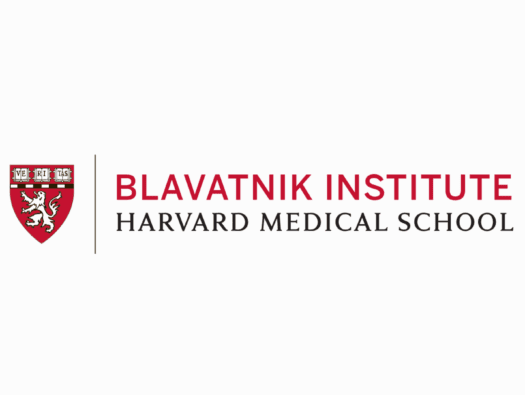News
Spotlight
Bangor University Researcher Announced as Finalist in Blavatnik Awards for Young Scientists
Dr Iestyn Woolway of Bangor University has been named one of nine UK finalists for the 2026 Blavatnik Awards for Young Scientists, becoming the first researcher from both Bangor University and Wales to receive this distinction. His research examines how climate change is reshaping lakes and freshwater ecosystems, advancing scientific understanding of environmental change and informing policy discussions. “I am honoured to be selected as a finalist alongside other leading researchers in the UK,” he said. The finalists will be recognised at a ceremony later this month, where the 2026 Laureates will be announced.
Pontus Skoglund Recognised as 2026 Blavatnik Finalist
Pontus Skoglund, Senior Group Leader at the Francis Crick Institute, has been named a 2026 Blavatnik Awards for Young Scientists UK Finalist in the Life Sciences category for his pioneering work in ancient DNA and human genetic history. He established the UK’s first high-throughput ancient DNA laboratory at the Crick, significantly advancing the analysis of archaeological remains and enabling new insights into human migration and evolution. His research combines large-scale genomic data and computational approaches to reconstruct population histories and trace the co-evolution of humans and pathogens. “I am honoured to receive this recognition from the Blavatnik Family Foundation. The award reflects the collective efforts of my research group and collaborators, and it is exciting to see our work on human genetic history and disease evolution highlighted on such a significant stage,” Skoglund said. His selection as a Finalist underscores the growing impact of ancient genomics on understanding human biology, history, and disease.
Embodying Polymer Chemistry with a Purpose by Upcycling Plastics and Trapping PFAS
In a Chemistry World profile, Blavatnik Award–winning chemist Frank Leibfarth describes how his work in polymer chemistry is driven by purpose as much as discovery, with a focus on upcycling plastics and capturing persistent “forever chemicals” (PFAS). By redesigning how common polymers behave at the molecular level, Leibfarth aims to add value to plastic waste rather than simply recycling it into lower-grade materials. His research also explores new polymer systems that can selectively bind and remove harmful contaminants from water. Together, these efforts illustrate how thoughtful materials design can address sustainability and public-health challenges, underscoring why his work has been recognized with a Blavatnik Award for advancing chemistry that is both rigorous and socially relevant.
AI Foundation Model Aims to Make Stem Cell Therapies More Predictable
Researchers at the Blavatnik Institute at Harvard Medical School are contributing to the development of a new artificial-intelligence “foundation model” to improve the predictability and reproducibility of stem cell research, a major hurdle in regenerative medicine. By analyzing large biological datasets, the model seeks to identify the underlying rules governing cell differentiation, helping scientists anticipate outcomes and reduce reliance on trial-and-error approaches. The work has led to the formation of Cellular Intelligence, which was co-founded by researchers in the Blavatnik Institute at Harvard Medical School to translate these insights into practical tools for the field. Early work benefited from shared space and infrastructure at the Blavatnik Harvard Life Lab Longwood, illustrating how supportive translational environments can help bridge discovery science and real-world application.
Learn More
Discover the cutting-edge science we fund
Providing many of the world's best researchers, scientists, and universities with support, and funding to discover breakthroughs that solve humankind's greatest challenges.
See how we support great cultural institutions around the world
The Foundation contributes to renowned institutions that showcase the breadth of arts and culture, including performance, exhibition and education.
Visit the Blavatnik Archive
The Blavatnik Archive is a nonprofit foundation dedicated to preserving and disseminating materials that contribute to the study of 20th-century Jewish and world history, with a special emphasis on World War I, World War II, and Soviet Russia.







